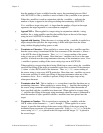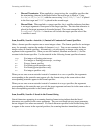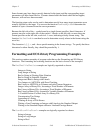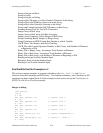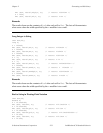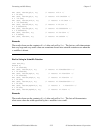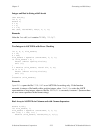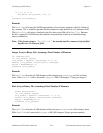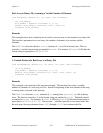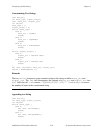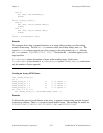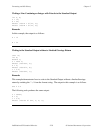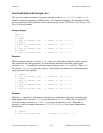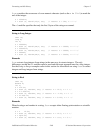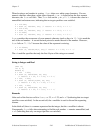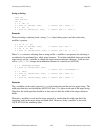
Chapter 2 Formatting and I/O Library
© National Instruments Corporation 2-55 LabWindows/CVI Standard Libraries
Real Array to Binary File, Assuming a Variable Number of Elements
void StoreArray (double x[], int count, char filename[])
{
int file_handle;
file_handle = OpenFile (filename, 2, 0, 0);
FmtFile (file_handle, "%*f<%*f", count, count, x);
CloseFile (file_handle);
}
Remarks
This example shows how a function can be used to write an array of real numbers to a binary file.
The function's parameters are a real array, the number of elements to be written, and the
filename.
The
FmtFile
call writes the first
count
elements of
x
to a file in binary form. The two
asterisks (
*
) in the format string are matched to
count
. For instance, if
count
is 100, then the
format string is equivalent to
%100f<100f
.
A Variable Portion of a Real Array to a Binary File
void StoreSubArray (double x[], int start, int count, char filename[])
{
int file_handle;
file_handle = OpenFile (filename, 2, 0, 0);
FmtFile (file_handle, "%*f<%*f[i*]", count, count, start, x);
CloseFile (file_handle)
}
Remarks
This example is an extension of the previous example. The function also writes a variable
number of elements of a real array to a file. Instead of beginning at the first element of the array,
a starting index is passed to the function.
The
FmtFile
call writes
count
elements of
x
, starting from
x[start]
, to a file in binary
form. The first two asterisks (
*
) in the format string are matched to
count
. The third asterisk
is matched to
start
. For instance, if
count
is 100 and
start
is 30, then the format string is
equivalent to
%100f<100f[i30]
. Because the
i
modifier specifies a zero-based index into
the real array, the array elements from
x[30]
through
x[129]
are written to the file.



